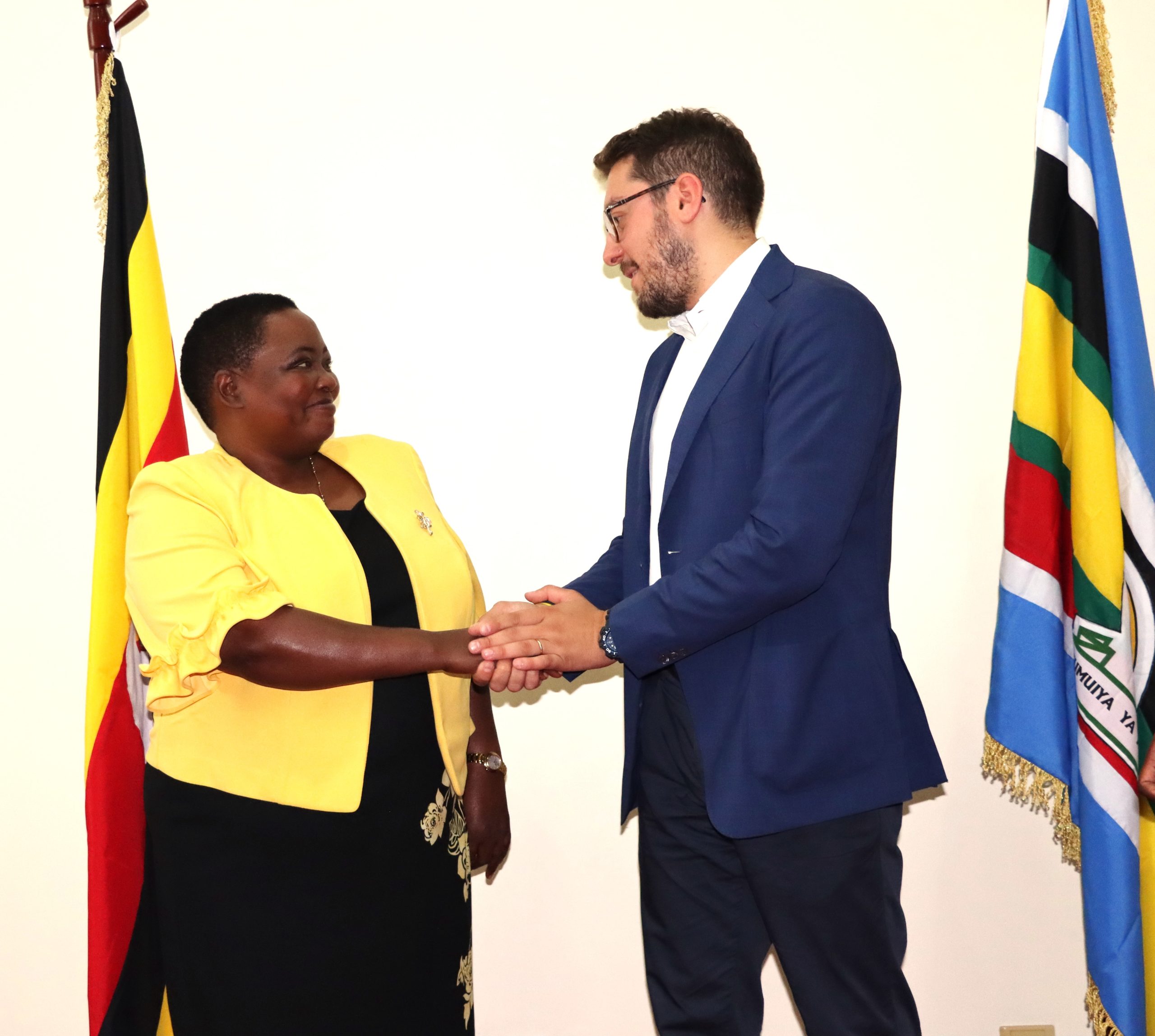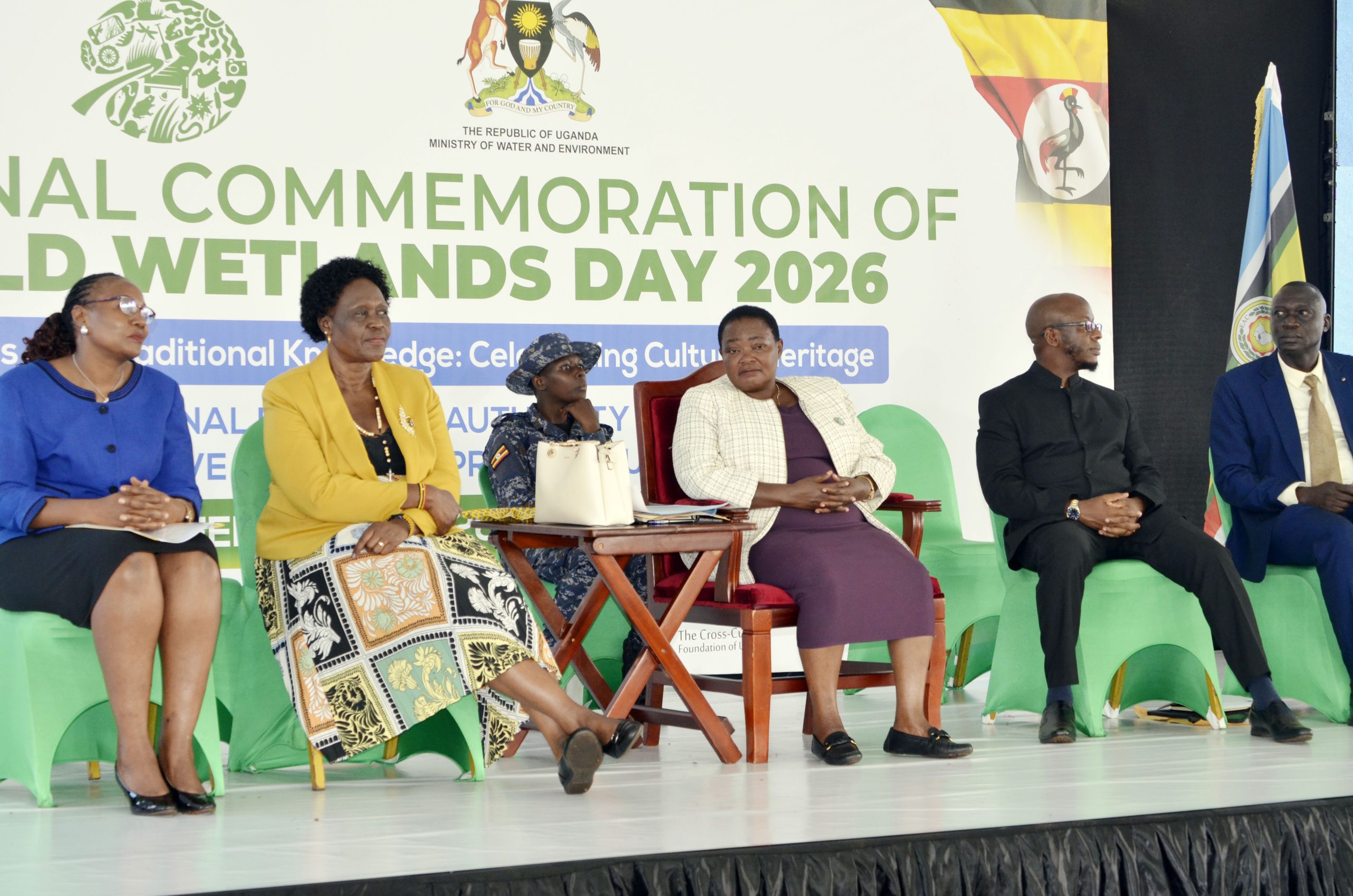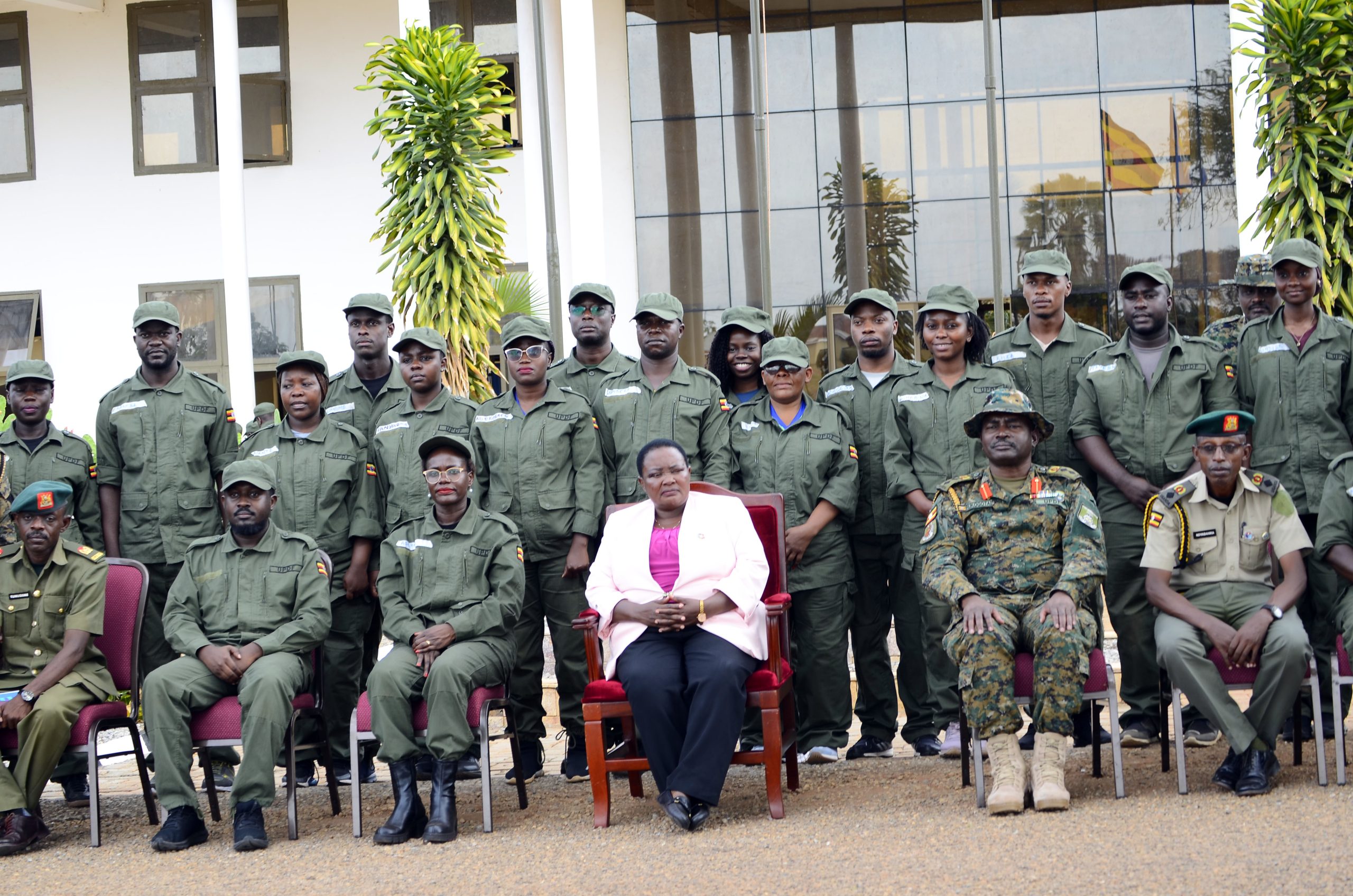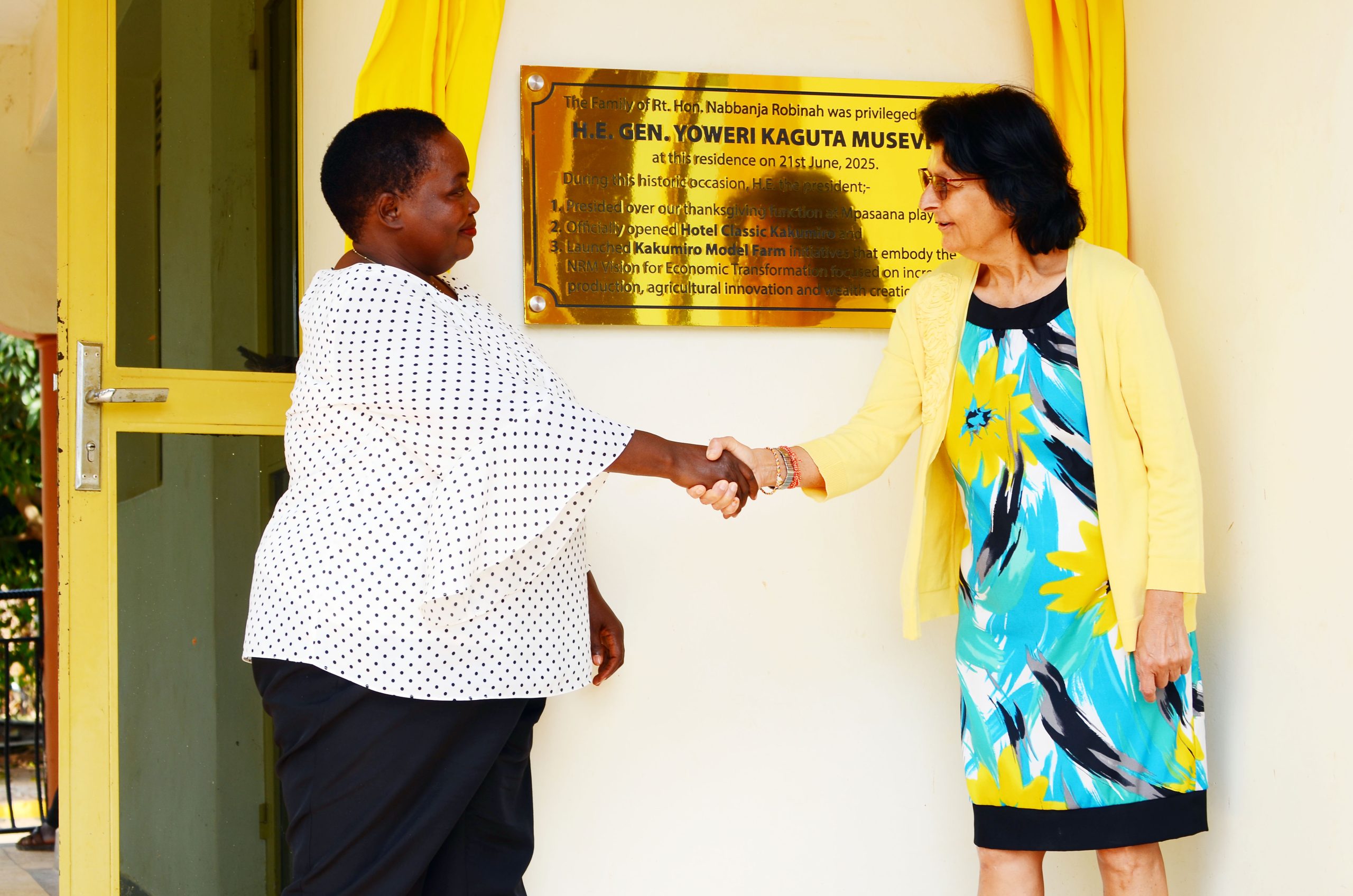By: Derrick Senyonga
KAMPALA
Prime Minister Rt. Hon. Robinah Nabbanja last week was paid a courtesy visit by Prof. Giracomo Ciambatti from the University of Cattolica, Italy. Nabbanja appreciated the university for its legacy as a global leader in research, education, and innovation making it a vital partner for the government of Uganda as it strives to enhance its own educational institutions and empower the next generation of Ugandan leaders.
“Research universities, such as the University of Cattolica, are at the forefront of finding solutions to the world’s most pressing challenges, from climate and food security to healthcare and technological advancements,” said the premier who called for joint research initiatives in areas such as migrant workers, setting up of entrepreneurship centres, coffee, among others.
“As you may be aware, 50% of Uganda’s coffee is exported to Italy. I have just returned from Italy and your country has expressed interest and have chosen Uganda among five coffee-producing countries to benefit from 700million Euros for processing and adding value to Uganda’s coffee before it is exported to European countries,” added the Prime Minister.
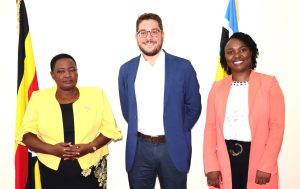
Rt. Hon. Nabbanja (left) with Prof. Giracomo (centre) and a colleague from E4Impact
Prof. Giracomo introduced and revealed to the Prime Minister, E4Impact, a social change organization that supports the start-up and growth of new businesses in Africa through MBAs, Entrepreneurship programs, business accelerators and economic development projects.
With over 10 national entrepreneurship centers and operating in more than 20 African countries, Prof. Giracomo revealed of plans to expand and scale up the projects operations in Uganda.
“We want to grow in other parts of the country also. Like in Kenya, we exploit in different regions. Scale more and do other entrepreneurship center in the northern part.
“We are talking about Gulu, Soroti areas, where there are a lot of agribusiness in different value chains that we can support in training. So with the Minister of Foreign Affairs, with other partners, we want to grow there and in other parts of the country,” he said.
Rt. Hon. Nabbanja welcomed the move saying that majority of the population in Uganda are the young people with full potential and that “entrepreneurship offers a pathway to job creation, poverty reduction and sustainable development”.
Waste Management – Extract from Prof. Giracomo
Regarding her recent working visit to Italy where the Prime Minister got audience with Rt. Hon. Tajan Antonio, the Deputy Prime Minister and Minister of Foreign Affairs & International Cooperation and discussed wide-ranging bilateral issues, including managing the after-math of the Kiteezi land-fill disaster, Prof. Giracomo shared tips on how waste management is handled in Italy.
Saying that waste is handled at household level, Prof. Giracomo said:
Prof. Giracomo: We have different municipalities, local organizations, like in Milan and Rome, different regions, which collect basically the recycled waste, not every day, but with different days during the week.
First of all, of course, there is a lot of commitment from the government to push toward regulation for the correct division of the waste. So at household level, the families must divide correctly. The government provided a bin, a small bin for the organic, whereas the family need to divide also for paper, plastic, and the glass.
Then we have at neighborhood level, because we have buildings where there are different flats. So in the basement of this, there are also points where the different people can go to just put the trash in different, bigger bins. Once the bins in the household are filled, they can go at the basement, they can take it there.
And then in some days of the week, the municipal organization come to pick from this bigger collection point at the basement of the flats. So they come, let’s say, for instance, Monday, there is a collection for glass. Tuesday, there is a collection for organic.
So organic is more frequent during the week. The other, like glass is less, paper and plastic is more frequent. So let’s say one per week, you can collect the glass and so on.
So these kinds of organizations then operating under the municipality bring in different garbage points, what can be recycled. So there are companies that then take it for recycling. This is, of course, I mean, basic approach.
Prime Minister interjects: What are the penalties? For example, I have put organic materials in the glass. What are the penalties? How do they manage?
Prof. Giracomo continues: Yeah, I don’t know what is the exact amount. I can suppose between 100 to 300 euros, something like that.
But also you have a rolling process, like if you got a penalty you don’t respect anymore, then you need to, you know, in some regions, what they adopted to understand is they put a sort of code in the bags. So the bags were provided, are still provided in some regions in like Rome, in the center of Italy, Rimini, at the regional level, they provide these bags with a certain code. So they can track that this code is associated with a certain district in the city or neighborhood, so that when it comes to finding out of wrong pieces there, then you can reconnect that. That is the unit, you know, of the house. That is a mixed material. So in that case, you can give the penalty. And the penalty is given like… Once you mix, you pay.
END.
